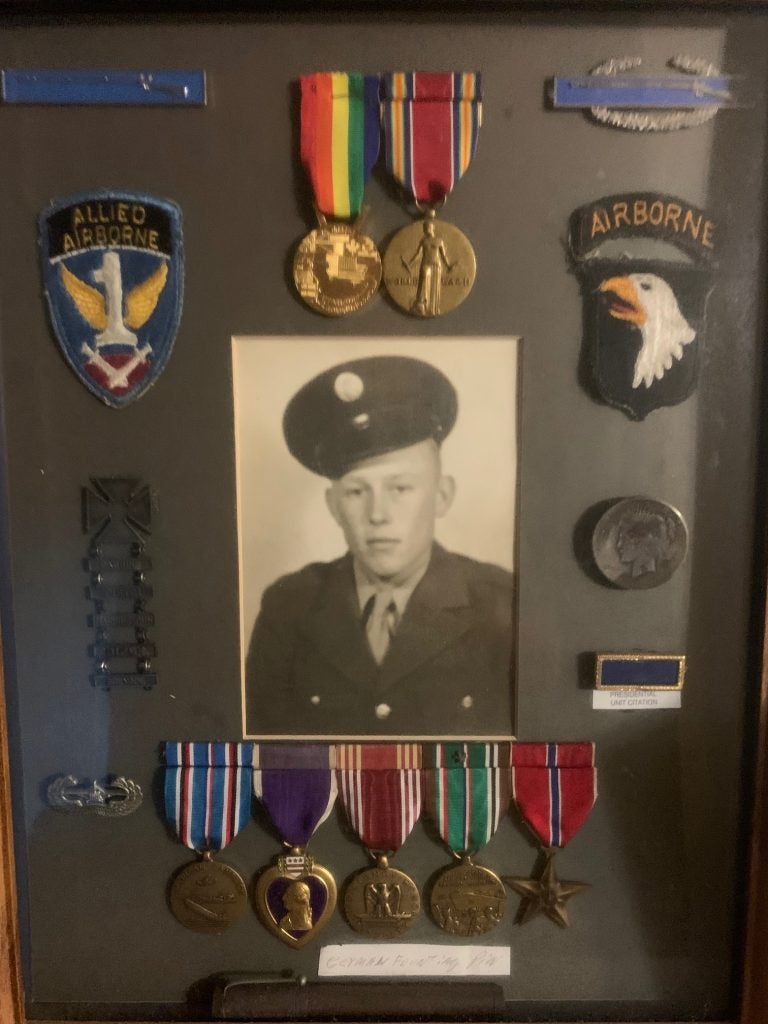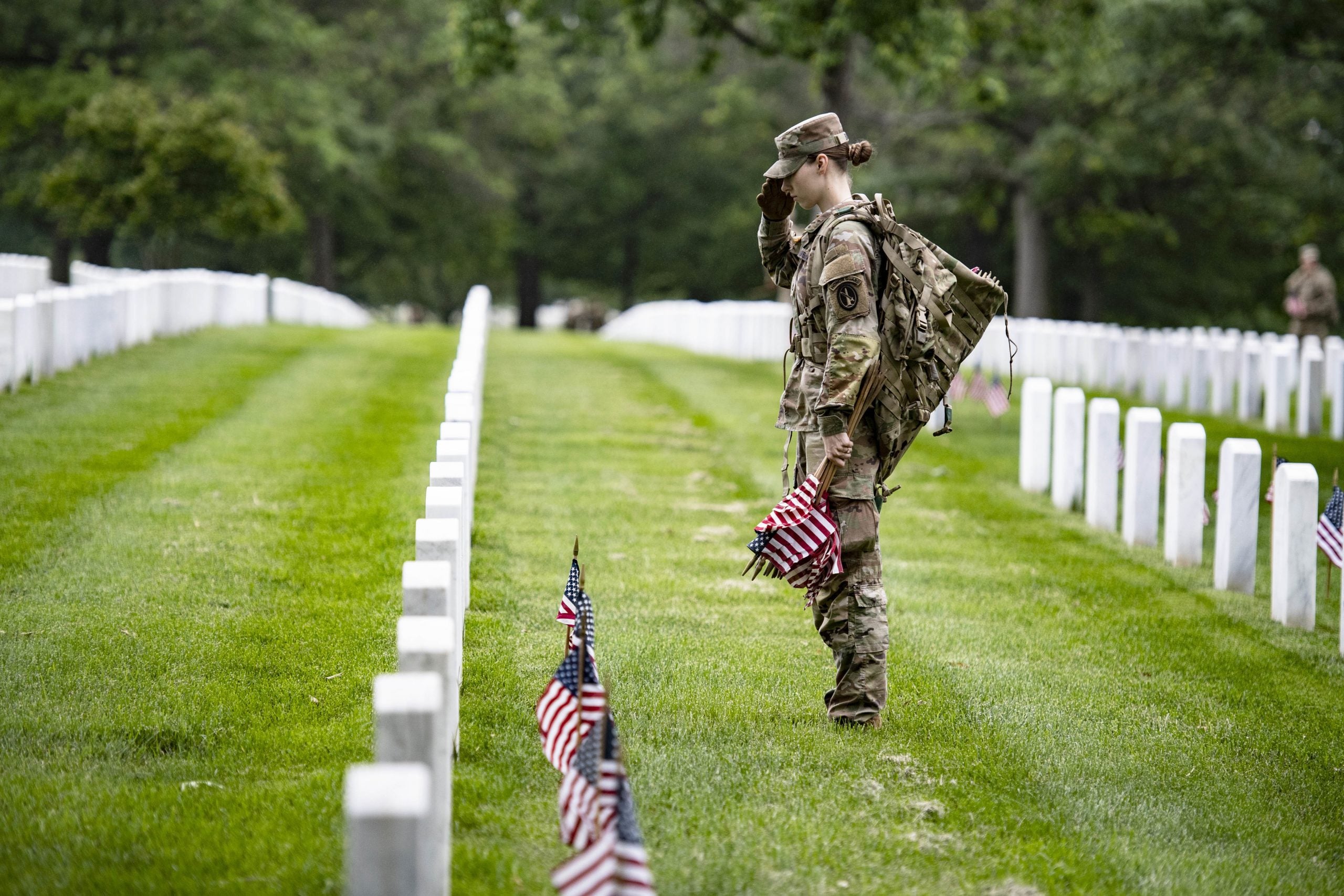(Editor’s note: this column was originally published May 25, 2022)
When I reflect on Memorial Day, I think of the two times I saw my grandfather cry in front of me.
Lester Reed, known in my family as “Gran Gran,” was a simple man; he was a humble and caring man who was one of those we call a part of “the greatest generation.” He lived his childhood in the Great Depression and went off to fight in World War II as a lad of 18.
MORE: Kroger Marketplace off Jimmie Dyess holds grand opening
After the war, he became a part of the American nuclear family model and raised kids, always drove a fire engine red pick-up and beamed with pride when neighbors would comment on his vegetable garden. He was a proud grandfather by the age of 46, and he died having lived 92 fruitful years.
After the war, Gran Gran went through his life never talking about his experience overseas as a young man, but it haunted him. He always walked with a leg brace and a slight limp that reminded him of his brush with death in 1944 on a battlefield far away from his homeland.
Gran Gran was a happy man, but there was always a little bit of a melancholy side to him as well, a wispiness that I never could quite put my finger on. He was prone to “woolgathering” as he would say. I guess today we would call those signs of PTSD.
It wasn’t until I came over one day to visit my grandfather, as a teenager in 1988 on a routine day after school, when he noticed I had a copy of “Mein Kampf” by Adolf Hitler along with my other high school books sitting in the front seat of the car he had sold me just a few weeks before.
Gran Gran exploded on me.
“How could you read this! It’s the ranting of a madman! I won’t have this book on my property!” Gran Gran fumed.
It was the first time in my life that I had ever seen him angry.
I explained that I was reading “Mein Kampf” totally for historical reference and that I was not in any way a sympathizer of the Nazis; and, at that moment, Lester Reed decided to talk, man-to-man with me, about his experience in the Ardennes Forest of Belgium in December of 1944.
Gran Gran invited me to go talk with him in what we called his shop behind the main house, or his man cave in modern parlance. He poured us both a little shot of whiskey and warned me not to just gulp down the little bit he gave me in the paper cup. He also warned me not to tell my grandmother he had given me a nip of spirits.
It was the first time I had ever tasted alcohol. I was only 17, and I took little sips as Gran Gran talked.
He told me about the camaraderie he experienced with the other farm boys who were in boot camp with him, he talked about how they went through training together and how they played cards in their off time and talked about girls they liked. They teased each other using epithets that would cause meltdowns in the politically correct atmosphere of today.

Those “boys” as Gran Gran called them became his best friends. Prior to D-Day, the war for them was a giant overseas camping trip; they had no idea of the hell to come.
The Battle of the Bulge was Hitler’s last desperate attempt to drive the Allies back from Germany’s western borders and he hurled every last resource and bomb at the last ditch effort.
The 101st Airborne, the “Screaming Eagles,” Gran Gran’s division, used gliders to move troops inland after D-Day and Gran Gran painfully recalled that several of his fellow soldiers were killed in the flimsy glider before it ever reached its landing area.
Gran Gran described to me that day what he saw on the battlefield in graphic detail as he slowly sipped his own bourbon shot. He described the deafening blasts that shook the ground and air making sleep almost impossible.
“When the shelling was going on, I saw body parts flying, and before I was hit myself, I saw the faces of my friends. They were dead. They were still. They were taken out in the prime of their life; there was no life there. They were gone, and they were so young,” I remember Gran Gran telling me.
As the unit came within the outskirts of Bastogne, Gran Gran dug a foxhole to try and get some sort of rest. His commanding sergeant approached and ordered Gran Gran out of the foxhole, telling him, “Thanks for digging me a cubby, little buddy!”
As Gran Gran got out of the hole and began walking away, a German M-88 artillery shell hit the foxhole dead-on, basically vaporizing the sergeant and sending shrapnel all over Gran Gran’s torso and legs.
That is just how close I came to never existing.
When he was evacuated to a field triage unit, Gran Gran recalled hearing nothing but gravely wounded men moaning. Some begged to be given the coup de grâce while others cried out for their “Mama.”
“That was probably the first words those boys spoke in life, and it was also their last,” Gran Gran said.
Gran Gran cried at the recollection and, for me, seeing such a strong man lose his composure over recounting such a memory has always affected me. He saw his buddies die next to him, and he had to live with that memory for the rest of his life.
Years before, Gran Gran and Mema had taken me to New York City to watch the unveiling of the refurbished Statue of Liberty. At the time, I remember as we sat on the pier to watch the fireworks display that Gran Gran had taken his hearing aids out and placed them on a table.
Sitting in his shop, amidst the faint smell of sawdust and savoring the strange bite of the whiskey, I suddenly understood why he had did that before the fireworks went off: he didn’t want to hear sounds that reminded him of war and cause him to have to once again remember the carnage he was once a part of.
The only other time I saw my dear Gran Gran shed a tear was when he was about 90 years old. I took him to get a haircut and a man noticed Gran Gran was wearing a veterans cap and quietly paid for his haircut.
Gran Gran shed tears at that gesture.
“I was one of the lucky ones; I came back home,” Gran Gran said with tears streaming down his weathered face.
I suppose that Gran Gran has now been reunited with his friends that we solemnly remember on Memorial Day. They belong to the ages and must never be forgotten.












